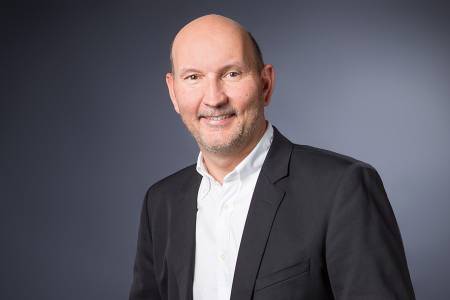As humans we are all conditioned to convert values into currencies. But when it comes to sustainability, we hit a brick wall. To determine how many francs clean air is worth, or how much a company having its own nursery contributes to the well-being of its workers, basic arithmetic just isn’t enough. Similarly, it is not enough to just consider economics when it comes to sustainability.
You are here:
Sustainability: how much is clean air worth?
Already know a bit about economic sustainability? Markus Zemp from the Lucerne University of Applied Arts and Sciences explains what this term means exactly, and why economic sustainability by itself is not actually sustainable.

The sustainability triad
“If companies want to be fully sustainable, they must always consider three dimensions: the social, the environmental and the economic dimension,” explains Markus Zemp from the Lucerne University of Applied Arts and Sciences. In this triad, economic sustainability is the key requirement that will ensure a company’s survival. Or, to put it another way: if you don’t have a sound financial basis, there is no prospect of a long-lasting business.
A company can be seen as acting sustainably if, in addition to making a reasonable profit, it also creates added value for society, and does not harm the environment through its actions.
A sustainability scenario
But a company can only develop sustainably if it reaches environmental and social objectives given equal status in addition to its economic objectives. Markus Zemp explains how these dimensions interact using a scenario: “Let’s take the example of flexitime: if employees are occasionally able to work from home, you are not only reducing commuter traffic, which can have a positive environmental impact, it also means that employees, on top of their work commitments, can also do more on a social level. This, in turn, could mean the company has motivated employees, who are its greatest asset to achieving economic progress.”
What makes sense for us?
According to Zemp, companies are broadly acting sustainably if they take sensible actions, and a company may give more weight to one of the sustainability dimensions in the process. “If, for example, a company decides to stop using fossil fuels, its production costs will increase, but it will be for the good of the environment and society,” Zemp explains. For companies, fostering sustainable development is therefore about striking a balance between the different sustainability dimensions based on their own value systems. This means it may well make perfect sense to not maximize profit, and instead to invest in environmental and social endeavours or projects.
It’s not just return on investment that counts
But how can companies demonstrate the added value they are creating, and make it visible to the outside world? Sustainability reports , which bigger companies are obliged to publish, or common good balance sheets , attempt to do just that. However, the most important thing about the drive towards sustainable economic activity is that companies do not just consider return on investment, but also how a given action might benefit society. Otherwise, initiatives such as a new company nursery, promoting a local club or investing in a company culture based on respect would never see the light of day.
For Zemp, one thing is very clear: “In these post-coronavirus times, we now find ourselves at a turning point where we have a huge opportunity to take things in different directions.” The carbon footprint, for instance, would clearly show what would happen if the number of passengers flying every day fell overnight from 30 million to almost none at all.
About Markus Zemp

Professor Markus Zemp is MBA programme leader at the Lucerne University of Applied Arts and Sciences at the Institute of Business and Regional Economics, as well CAS study leader for Business Management and Sustainable Management, Head of the Business Plan Module, smart-up coach and a lecturer in leadership and corporate management.
